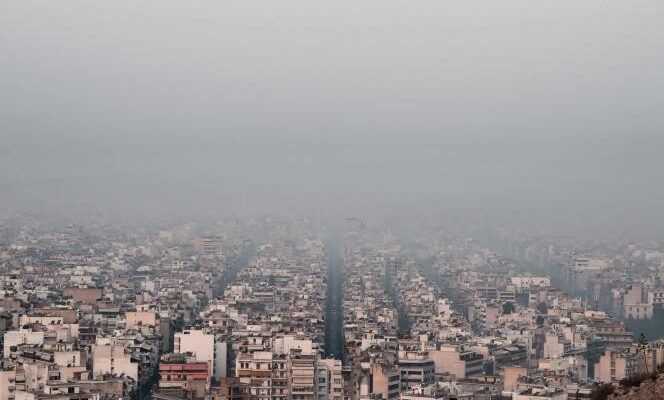The days go by and the scorching temperatures do not fall again in the eastern Mediterranean basin, continuing to fuel dozens of daily fires in Greece, Turkey, Albania or Italy, as well as the evacuation of thousands of inhabitants. and tourists. The situation is particularly complicated, Wednesday, August 4, in the Athens basin, where a fire drapes the Greek capital, already crushed by the heat, with suffocating smoke.
According to scientists, these heat waves are an unequivocal marker of climate change, and such heat waves could multiply, lengthen and intensify in the decades to come. As summarized by Nikos Hardalias, Greek Deputy Minister for Civil Protection, “We are in a phase of absolute climatic deregulation”.
Nearly eighty fires in just twenty-four hours in Greece
The consequences of the worst heat wave in over thirty years are daily, visible and destructive. Average temperatures of 43 ° C, with records reaching 47 ° C near Thessaloniki according to the Greek meteorological service, are causing blackouts and fires. Like the Acropolis, all open-air archaeological sites across the country will close in the afternoon until Friday. Temperatures are not expected to drop below 40 ° C until the end of the week.
According to the authorities, nearly eighty fires broke out in barely twenty-four hours, between Monday evening and Tuesday evening. Most have been brought under control, the notable exception being the one that engulfed Athens in thick smoke and a pungent odor.
The fire broke out on Tuesday in a pine forest at the foot of Mount Parnes, one of the three mountains surrounding the Athens basin. The flames quickly burned through this favorable terrain, and reached the locality of Varympompi, about thirty kilometers north of the Greek capital.
There was only material damage, according to the authorities, with dozens of houses, businesses and vehicles burned. More than three hundred people were evacuated, as were two hundred horses from the region’s equestrian centers and the precious works that were in the former royal palace of Tatoï.
“We were faced with a difficult fire in extreme scorching conditions”, summarized the Prime Minister, Kyriakos Mitsotakis, who went there. “There were four fronts. (…) Currently the fire is in recession, there is only one left ”, said Nikos Hardalias. The firefighters, who mobilize five helicopters and a dozen water bombers, hoped to control him “In the next few hours”.
Ecological disaster on the Aegean coast of Turkey
The situation in Turkey is worse, both in terms of scorching temperatures and the ecological disaster they cause. Ground-level temperatures soared to over 50 ° C for the second time in a month, according to the European Space Agency.
The fires ravaging the forests, farmlands and villages of the Aegean coast are the worst in a decade. Of the 156 fires that broke out in one week, nine are still active. Almost 100,000 hectares have burned so far in 2021. Between 2008 and 2020, the annual average was just over 13,000 hectares per year.
In the town of Mugla, in the southwest of the country, “The situation is very serious”, according to its mayor, Muhammet Tokat, because the flames are dangerously approaching a thermal power plant. Elsewhere on the coast, in the same province, tourists and villagers who left their homes and livestock behind were evacuated in boats to escape the fires. In the past week, eight people have died and hundreds have been injured.
Criticized for not having planned enough firefighting planes and for delaying the moment to ask the European Union for them, Turkish President Recep Tayyip Erdogan has admitted that the country does not have a fleet in working state.
On the sixth and seventh days of the incident, Monday and Tuesday, three Canadairs were finally sent by Spain and Croatia. The European Commission announced on Wednesday the dispatch of additional planes, helicopters and firefighters to Italy, Greece, Albania and North Macedonia.
